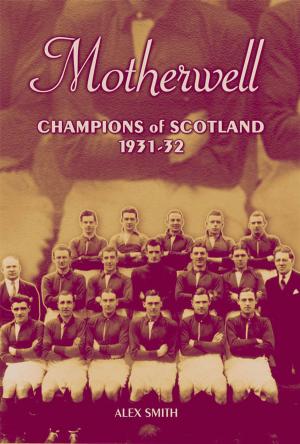| Author: | Edward Giles | ISBN: | 9781908495280 |
| Publisher: | Desert Island Books | Publication: | October 10, 2012 |
| Imprint: | Language: | English |
| Author: | Edward Giles |
| ISBN: | 9781908495280 |
| Publisher: | Desert Island Books |
| Publication: | October 10, 2012 |
| Imprint: | |
| Language: | English |
Notts County's Tommy Lawton Era came in three parts first as player from November 1947 to March 1952, then as manager from May 1957 to July 1958, and finally as coach and chief scout from October 1968 to December 1969. Lawton was one of the biggest names in football when he sensationally left Chelsea to join Notts County in the Southern Section of the Third Division. The story ranges from Lawton's heights of being one of England's finest centre-forwards to the depths that led him to the verge of suicide. Lawton went from the euphoria of County's promotion to the disillusion of three departures from Meadow Lane. The first departure took him to Brentford, then to Arsenal. The second, after leading Kettering to the Southern League title, brought relegation and dismissal after only one season as manager. The third cast him into the dole queue when his role as County's chief scout was declared redundant. Away from football, life for Lawton was one setback after another as publican, sports shop manager, insurance salesman and pools representative. Woven into this gripping tale are memories of other Notts personalities of the Lawton Era. These include the player he helped to make the costliest in the game; his successor as captain who died young; a fellow international who gave a Nazi salute; a Scot rated by his manager as the finest young inside-forward he had ever seen. Tommy Lawton was judged by many to be the greatest England centre-forward of all time. He was just 28, and in his footballing prime, when he landed at Notts County. He had scored against Northern Ireland days before signing for Notts and scored against Sweden days after signing. In between, Lawton scored on his Notts debut at Northampton. Has a greater player ever graced the English Third Division? This should be a tale of glory. It isn't. Although Notts won a rapid promotion, they were soon embroiled in a downward spiral. Lawton's football and personal fortunes suffered. Cast into the international wilderness within a year of arriving at Meadow Lane, he was destined to miss the 1950 World Cup. Lawton came and left Notts County three times, each in circumstances more anguished than the last.
Notts County's Tommy Lawton Era came in three parts first as player from November 1947 to March 1952, then as manager from May 1957 to July 1958, and finally as coach and chief scout from October 1968 to December 1969. Lawton was one of the biggest names in football when he sensationally left Chelsea to join Notts County in the Southern Section of the Third Division. The story ranges from Lawton's heights of being one of England's finest centre-forwards to the depths that led him to the verge of suicide. Lawton went from the euphoria of County's promotion to the disillusion of three departures from Meadow Lane. The first departure took him to Brentford, then to Arsenal. The second, after leading Kettering to the Southern League title, brought relegation and dismissal after only one season as manager. The third cast him into the dole queue when his role as County's chief scout was declared redundant. Away from football, life for Lawton was one setback after another as publican, sports shop manager, insurance salesman and pools representative. Woven into this gripping tale are memories of other Notts personalities of the Lawton Era. These include the player he helped to make the costliest in the game; his successor as captain who died young; a fellow international who gave a Nazi salute; a Scot rated by his manager as the finest young inside-forward he had ever seen. Tommy Lawton was judged by many to be the greatest England centre-forward of all time. He was just 28, and in his footballing prime, when he landed at Notts County. He had scored against Northern Ireland days before signing for Notts and scored against Sweden days after signing. In between, Lawton scored on his Notts debut at Northampton. Has a greater player ever graced the English Third Division? This should be a tale of glory. It isn't. Although Notts won a rapid promotion, they were soon embroiled in a downward spiral. Lawton's football and personal fortunes suffered. Cast into the international wilderness within a year of arriving at Meadow Lane, he was destined to miss the 1950 World Cup. Lawton came and left Notts County three times, each in circumstances more anguished than the last.















